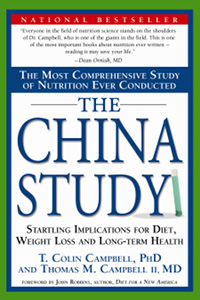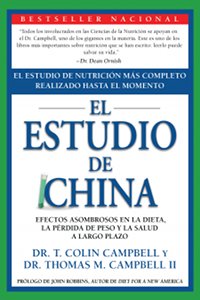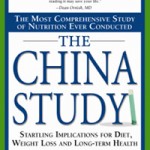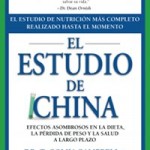Health, nutrition experts examine comprehensive China nutrition study
Posted by Elena del Valle on August 8, 2014

The China Study
Photos: BenBella Books, Inc.
A good diet is one of the most important ways to achieve and maintain optimum health, say T. Colin Campbel, Ph.D. and Thomas M. Campbell II, M.D. In The China Study Startling Implications for Diet, Weight Loss and Long-Term Health (BenBella Books, $16.95), published in 2006, and the Spanish language edition El Estudio de China Efectos Asombrosos de la Dieta, la Pérdid ade Peso y la Salud a Largo Plazo (BenBella Books, $17.95), published in 2012, the father discusses his reasoning and the data he relied on to reach his conclusions. He points out that despite spending more per person on health care than any other country the United States is struggling with the health of its citizenry.

El Estudio de China
Obesity, diabetes, cardiac disease, high cholesterol, and cancer are among the best known signs of trouble. They and other illnesses lead half of Americans to take prescription medications every week, Colin Campbell explains in the Introduction. The 419-page softcover book, (481 pages in the Spanish edition) is divided into four main sections: The China Study, Diseases of Affluence, The Good Nutrition Guide, and Why Haven’t You Heard This Before?
As director of a comprehensive study of diet, lifestyle and disease Colin Campbell learned that the people who got the most chronic diseases were the ones who ate the most animal products. He went on to discover that the effects of such diseases could be reversed with a healthy diet. He was surprised to discover the level of confusion that exists due to misinformation.
Based on his many decades of diet and health research he has become convinced that heart disease can be prevented and even reversed without surgery or drugs. Eating the right foods is the secret, he believes.
In Appendix C, he discusses the role of vitamin D in health, pointing out that people living in places with low sunshine are more prone to certain diseases such as type 1 diabetes, multiple sclerosis, rheumatoid arthritis, osteoporosis, and breast, colon and prostate cancer. One quarter of the amount of sunshine needed to produce a slight redness to your skin, two to three times a week, will produce and store the necessary amount of vitamin D, according to the author. An excess of animal protein which create an acidic blood environment can affect the vitamin D process in the body, he points out.


Click to buy El Estudio de China









